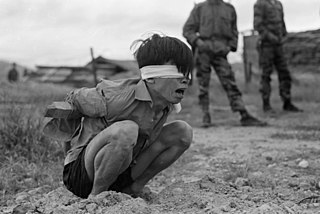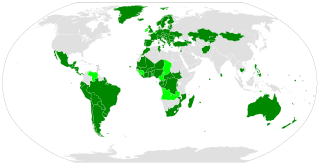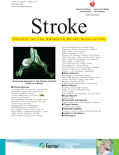
Torture is the deliberate infliction of severe pain or suffering on a person for reasons such as punishment, extracting a confession, interrogation for information, or intimidating third parties. Some definitions are restricted to acts carried out by the state, but others include non-state organizations.

The Convention Against Torture and Other Cruel, Inhuman or Degrading Treatment or Punishment is an international human rights treaty under the review of the United Nations that aims to prevent torture and other acts of cruel, inhuman, or degrading treatment or punishment around the world.
PubMed is a free search engine accessing primarily the MEDLINE database of references and abstracts on life sciences and biomedical topics. The United States National Library of Medicine (NLM) at the National Institutes of Health maintain the database as part of the Entrez system of information retrieval.
Inge Genefke is a Danish campaigner and worker on behalf of torture victims. She received the Right Livelihood Award in 1988 "for helping those whose lives have been shattered by torture to regain their health and personality."

Emerging Infectious Diseases (EID) is an open-access, peer-reviewed journal published by the Centers for Disease Control and Prevention (CDC). EID is a public domain journal and covers global instances of new and reemerging infectious diseases, putting greater emphasis on disease emergence, prevention, control, and elimination. According to Journal Citation Reports, the journal's 2022 impact factor is 11.8. The journal also has a 2023 Google Scholar h5-index score of 106, ranking it 2nd in the epidemiology category and 4th in the communicable diseases category.
Torture is the infliction of physical or psychological pain to punish or coerce an action from the victim.

The International Rehabilitation Council for Torture Victims (IRCT) is an independent, international health professional organization that promotes and supports the rehabilitation of torture victims and works for the prevention of torture worldwide. Based in Denmark, the IRCT is the umbrella organization for over 160 independent torture rehabilitation organizations in 76 countries that treat and assist torture survivors and their families. They advocate for holistic rehabilitation for all victims of torture, which can include access to justice, reparations, and medical, psychological, and psycho-social counseling. The IRCT does this through strengthening the capacity of their membership, enabling an improved policy environment for torture victims, and generating and share knowledge on issues related to the rehabilitation of torture victims. Professionals at the IRCT rehabilitation centers and programs provide treatment for an estimated 100,000 survivors of torture every year. Victims receive multidisciplinary support including medical and psychological care and legal aid. The aim of the rehabilitation process is to empower torture survivors to resume as full a life as possible. In 1988, IRCT, along with founder Inge Genefke, was given the Right Livelihood Award "for helping those whose lives have been shattered by torture to regain their health and personality."
José Quiroga Fuentealba is a cardiologist who served as a physician to Chilean president Salvador Allende. During the 1973 Chilean coup d'état, Quiroga witnessed the Chilean Army assault the government palace. He was detained and beaten until his release was ordered by a Chilean military general.

The Optional Protocol to the Convention Against Torture and Other Cruel, Inhuman or Degrading Treatment or Punishment is a treaty that supplements to the 1984 United Nations Convention Against Torture. It establishes an international inspection system for places of detention modeled on the system that has existed in Europe since 1987.
The United Nations International Day in Support of Victims of Torture is an international observance held annually on 26 June to speak out against the crime of torture and to honour and support victims and survivors throughout the world.
This is a day on which we pay our respects to those who have endured the unimaginable. This is an occasion for the world to speak up against the unspeakable. It is long overdue that a day be dedicated to remembering and supporting the many victims and survivors of torture around the world.
On this International Day in Support of Victims of Torture, we express our solidarity with, and support for, the hundreds of thousands of victims of torture and their family members throughout the world who endure such suffering. We also note the obligation of States not only to prevent torture but to provide all torture victims with effective and prompt redress, compensation and appropriate social, psychological, medical and other forms of rehabilitation. Both the General Assembly and the Human Rights Council have now strongly urged States to establish and support rehabilitation centers or facilities.
Music can be used as a tool of psychological warfare. The term "music torture" is sometimes used to describe the practice. While it is acknowledged by United States interrogation experts to cause discomfort, it has also been characterized as having no "long-term effects".
Bangladesh Rehabilitation Centre for Trauma Victims is a Bangladeshi NGO, working in the area of rehabilitation of trauma victims. It was established in 1992. BRCT began its journey by providing medical treatment, legal support, and rehabilitation to the victims on 25 February 1992 with support from foreign medical experts.
DIGNITY - Danish Institute Against Torture is a self-governing institution independent of party politics located in Denmark. The institution works to expose and document torture on a health professional basis, develop clinical diagnoses and treatment methods of torture survivors, educate in order to contribute to the global effort to abolish torture.

Stroke is a peer-reviewed medical journal published monthly by Lippincott Williams & Wilkins on behalf of the American Heart Association. It covers research on cerebral circulation and related diseases, including clinical research on assessment of risk for stroke, diagnosis, prevention, and treatment, as well as rehabilitation. All articles become open access after a 12-month embargo. The editor-in-chief was Ralph L. Sacco.
The Institute of Therapy and Investigation into the Effects of Torture and State Violence is a multidisciplinary non-governmental organisation based in Bolivia. It offers assistance to those affected directly or indirectly by torture and state violence through rehabilitative means.

The Program for Torture Victims (PTV) is a non-profit organization that provides medical, psychological, case management and legal services to torture survivors. PTV serves more than 300 victims of state-sponsored torture from over 65 countries annually.
Center for Survivors of Torture (CST) is a non-profit 501(c)(3) organization founded in Dallas, Texas with an office in Austin, Texas. CST was founded in 1997 with the mission of rehabilitating international torture survivors through counseling, medical, legal, and social services.
The Inge Genefke Award is granted every second year by the Anti-Torture Support Foundation to a person who has carried out particularly outstanding work against torture. Named after Dr. Inge Genefke, a Danish physician and trailblazer in the worldwide fight against torture, the award can not be applied for, but is given by the decision of the board of the Anti-Torture Support Foundation.

COVAX-19 is the result of a collaboration between Vaxine and CinnaGen, a private company with operations in the Middle East. COVAX-19 is a recombinant protein-based COVID-19 vaccine developed by South Australian-based biotech company Vaxine. It is under clinical trial in collaboration with the Iranian company CinnaGen.

Noora is a COVID-19 vaccine candidate developed by Baqiyatallah University of Medical Sciences in collaboration with Plasma Darman Sarv Sepid Co. in Iran.








